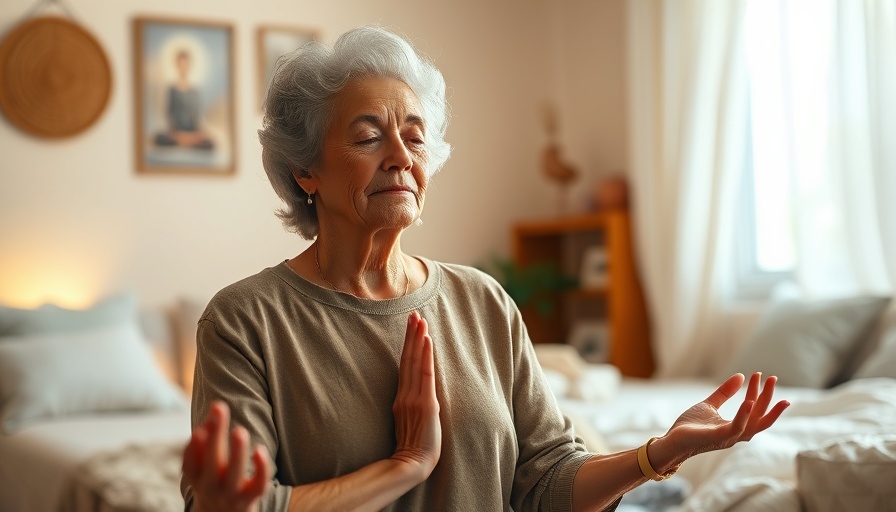
Understanding the Impact of Daytime Sleepiness
The link between excessive daytime sleepiness and all-cause mortality in middle-aged women is a significant finding that highlights the importance of sleep integrity. According to recent research, women aged 50 to 65 with high scores on the Epworth Sleepiness Scale demonstrated a 16% increased risk of mortality compared to those with normal sleepiness. This underscores the need for effective sleep management strategies, particularly in this vulnerable demographic.
Why Are Middle-Aged Women at Risk?
As women transition into their middle age, hormonal and metabolic changes may contribute to heightened daytime sleepiness. The study led by Dr. Arash Maghsoudi emphasizes that this phase can be critical for assessing sleep-related health issues. In fact, it suggests that the mid-50s is a pivotal time for health professionals to implement screenings like the Epworth Sleepiness Scale. By addressing sleep issues early, women can potentially mitigate risks associated with sleep disorders.
Exploring the Mechanisms Behind Sleepiness
Various factors could be influencing this increased risk. Hormonal fluctuations and changes in resilience towards stressors might play a role. Dr. Maghsoudi's work prompts further exploration of how these elements intersect and impact women's health as they age. Understanding these underlying mechanisms may lead to improved intervention strategies in managing excessive daytime sleepiness.
Practical Tips to Improve Sleep Quality
If you find yourself battling daytime sleepiness, consider incorporating some simple strategies into your routine:
- Maintain a Consistent Sleep Schedule: Try to go to bed and wake up at the same time each day, even on weekends.
- Create a Relaxing Bedtime Routine: Engage in calming activities before bed, such as reading or light stretching, to signal your body that it's time to wind down.
- Limit Screen Time: Reduce exposure to screens at least an hour before bedtime, as blue light can disrupt circadian rhythms.
- Physical Activity: Regular exercise, even light walking, can significantly improve sleep quality and reduce feelings of sleepiness during the day.
- Mindful Eating: Avoid heavy meals close to bedtime and be mindful of caffeine and alcohol intake.
Addressing Misconceptions about Daytime Sleepiness
There is a common misconception that daytime sleepiness is simply a part of aging or that it’s harmless. Quite the contrary, it's crucial to recognize that persistent sleepiness can lead to severe health consequences. Likewise, it can be a warning sign for underlying health conditions. Elevating awareness of these risks empowers individuals to seek necessary evaluation and care.
Connecting Enlightenment with Action
Understanding the implications of excessive daytime sleepiness can lead to better health choices. With the knowledge of potential mortuary risks in middle-aged women, we should advocate for more dialogues around sleep health. It’s crucial to prioritize proper sleep hygiene and regular check-ups, so don't hesitate to discuss sleep patterns with your healthcare provider.
Don’t wait to take charge of your sleep health! Investigate how your sleep quality affects your overall health by keeping a sleep diary, and consult with a healthcare professional about taking an Epworth Sleepiness Scale. The journey to better health begins with awareness.
 Add Row
Add Row  Add
Add 




 Add Row
Add Row  Add
Add 

Write A Comment